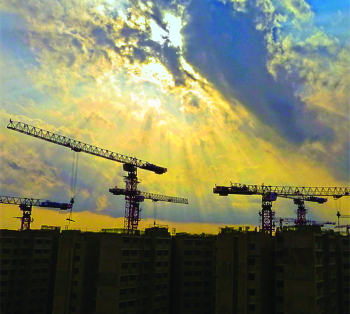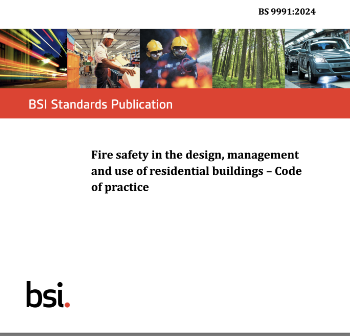Fire marshal
Contents |
[edit] Introduction
A fire marshal, also known as a fire warden, is an individual who is allocated, or who volunteers, to take on fire safety responsibilities for their organisation. A fire marshal should appoint a ‘deputy’ who can fill in for them if they are absent.
In general ,the role of a fire marshal falls into two areas: routine and emergency.
[edit] Routine responsibilities
The routine, day-to-day responsibilities of a fire marshal include:
- Checking that fire exits and escape routes are free of obstructions.
- Checking that fire extinguishers and emergency alarm points are in-place with up-to-date service records.
- Ensuring storage is controlled and organised, particularly with regard to combustible material.
- Making sure that rubbish such as paper waste is not allowed to accumulate.
- Ensuring that all electrical equipment is PAT-tested (Portable Appliance Testing).
- Checking that emergency lighting is operational.
- Where necessary, maintaining a system for issuing hot works permits.
- Conducting inductions with new members of staff.
- Arranging fire drills.
- Establishing signing-in and out procedures for staff and visitors to the building.
- Establishing safe exit routes for people with disabilities who may need assistance.
- Checking that fire safety signs are in position and visible.
- Checking that fire-resistant doors are closed and functioning properly.
- Identifying and reporting possible fire hazards.
NB: Some high-profile buildings, or those in the vicinity of high-profile buildings, can be at risk of terrorist action. In these circumstances, it is recommended that bomb drills are carried out occasionally, with the fire marshals being responsible for coordinating and ensuring that staff know the appropriate procedures.
[edit] Emergency responsibilities
The responsibilities of a fire marshal in the event of an emergency, whether genuine or false, include:
- Alerting the emergency services when an alarm is not part of a scheduled fire drill.
- Helping to evacuate people from the building to assembly points.
- Ensuring that equipment is secured.
- Ensuring they have a list of those who are normally present in the building, as well as the signing-in book.
- Carrying out a roll-call to ensure everyone has left the building safely.
A large building will require multiple fire marshals at different assembly points. In this case, the fire marshals should have a pre-arranged method of communicating to check for missing persons.
[edit] Related articles on Designing Buildings Wiki
- Building evacuation.
- Construction fire safety responsibility and competence matrix.
- Emergency services.
- Fire.
- Fire and rescue service.
- Fire authority.
- Fire detection and alarm system.
- Fire inspector.
- Fire prevention on construction sites.
- Fire protection engineering.
- Fire safety design.
- Means of escape.
- Responsible person.
- Site inspector for construction works.
[edit] External resources
- UK Fire Training - Fire marshal duties
Featured articles and news
CLC and BSR process map for HRB approvals
One of the initial outputs of their weekly BSR meetings.
Building Safety Levy technical consultation response
Details of the planned levy now due in 2026.
Great British Energy install solar on school and NHS sites
200 schools and 200 NHS sites to get solar systems, as first project of the newly formed government initiative.
600 million for 60,000 more skilled construction workers
Announced by Treasury ahead of the Spring Statement.
The restoration of the novelist’s birthplace in Eastwood.
Life Critical Fire Safety External Wall System LCFS EWS
Breaking down what is meant by this now often used term.
PAC report on the Remediation of Dangerous Cladding
Recommendations on workforce, transparency, support, insurance, funding, fraud and mismanagement.
New towns, expanded settlements and housing delivery
Modular inquiry asks if new towns and expanded settlements are an effective means of delivering housing.
Building Engineering Business Survey Q1 2025
Survey shows growth remains flat as skill shortages and volatile pricing persist.
Construction contract awards remain buoyant
Infrastructure up but residential struggles.
Home builders call for suspension of Building Safety Levy
HBF with over 100 home builders write to the Chancellor.
CIOB Apprentice of the Year 2024/2025
CIOB names James Monk a quantity surveyor from Cambridge as the winner.
Warm Homes Plan and existing energy bill support policies
Breaking down what existing policies are and what they do.
Treasury responds to sector submission on Warm Homes
Trade associations call on Government to make good on manifesto pledge for the upgrading of 5 million homes.
A tour through Robotic Installation Systems for Elevators, Innovation Labs, MetaCore and PORT tech.
A dynamic brand built for impact stitched into BSRIA’s building fabric.
BS 9991:2024 and the recently published CLC advisory note
Fire safety in the design, management and use of residential buildings. Code of practice.























